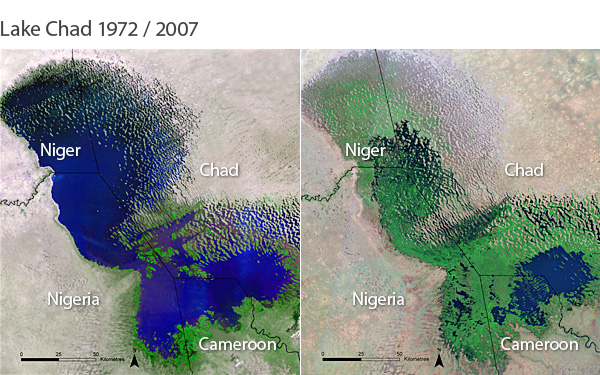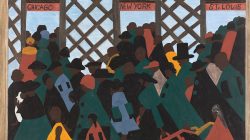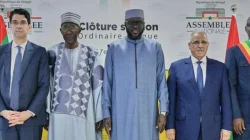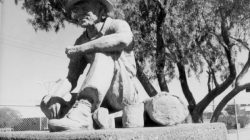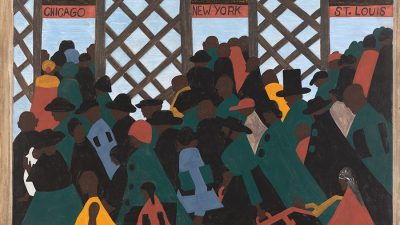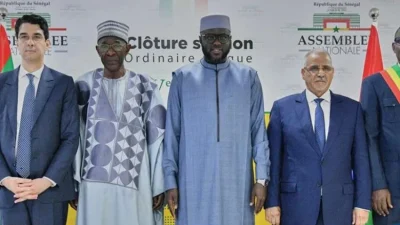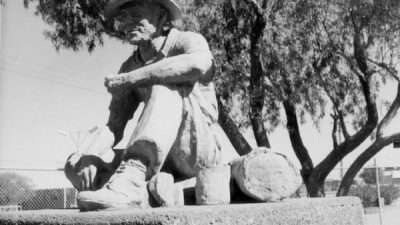ISWAP’s hunt for resources is eroding the ability of communities in northern Cameroon to withstand economic hardship.
Since 2021, Islamic State West Africa Province (ISWAP) has intensified its footprint in Cameroon’s Far North Region through
increased
extortion of communities and a spate of brutal attacks on military barracks in Logone-et-Chari and Borno (Nigeria).
These twin tactics reveal ISWAP’s goals of extending its zone of influence and replenishing its resources. Governments in the area need to act with urgency, as the effects strain local livelihoods.
Several Logone-et-Chari villages and islands are heavily influenced by ISWAP. The group, a breakaway faction of Boko Haram, has appointed Ibn Umar and Malam Ba’ana, two of its leading figures, to handle ‘taxation’ and zakat collection in this part of Cameroon.
On 4 January, around 20 ISWAP fighters arrived in Wuyan Yachi and announced a raft of ‘tax’ increases. These included ₦40 000 (US$26) per field after each harvest for farmers, up from ₦10 000 (US$6); and ₦25 000 (US$16) per bag of fish instead of ₦15 000 (US$10) for fishermen. Those who don’t pay are
executed
by ISWAP.
|
Localities heavily influenced by ISWAP |
Institute for Security Studies (ISS) research reveals four main reasons for ISWAP’s increased extortion. These are to finance its expansion in Nigeria, deal with the effects of military operations on its finances, reduce the impact of the naira’s fall on its finances (the naira is the commonly used currency in Lake Chad Basin border areas), and counteract Nigeria’s measures to combat terror financing.
First, ISWAP wants to establish itself in Nigeria’s north-eastern states of Taraba, Gombe and Bauchi, which have so far been spared its abuses. It also wants to reach the North West and North Central regions. Cells have been set up in
Kogi
State in North Central for example, and are expected to grow.
Such a project requires money to pay combatants and buy weapons, ammunition, materials for manufacturing improvised explosive devices, and vehicles (such as motorcycles and canoes). ISWAP also needs to support an alternative governance system in the localities it controls, to forge a social pact between civilians and insurgents. In that regard, the group seeks to fund its so-called ‘charitable works’, as
occurs
in some Lake Chad Basin communities under its control.
Second, various military offensives – including Operation Lake
Sanity
,
Lafiya Dole
, Hadin Kai and
Emergence
4 – have taken their toll on Boko Haram’s human resources, arsenal and assets in the Lake Chad Basin. They have also disrupted the group’s funding sources, such as cattle rustling, kidnapping for ransom, extortion, illicit trafficking, agriculture, livestock farming and fishing.
Operation Lake Sanity 2, for example, eliminated over 310 Boko Haram fighters, neutralised several insurgent bases, destroyed logistical assembly points, seized large quantities of weapons, and rescued numerous civilians. Military counter-offensives are currently on the wane as they await renewal (e.g. Lake Sanity, Alpha and Emergence 4), so ISWAP is taking advantage of the situation to revive its economy of
violence
.
Third, since 2022, Nigeria has been going through an economic crisis triggered by rising inflation following a fall in the naira against the United States dollar. In August 2024, inflation reached 29.9%, its highest level since 1996, and the
naira
fell to ₦1 524 to the dollar, representing a 230% loss in value.
This fall has reduced Boko Haram’s finances – most of which are held in naira – and spurred efforts to raise money mainly through extortion. In Logone-et-Chari, when the naira falls, ISWAP demands users pay their fees in the more stable
currency
of the Economic and Monetary Community of Central Africa, the CFA franc.
Fourth is the Nigerian government’s
efforts
since 2019 to cut off the funding Boko Haram factions receive from outside. These efforts include restrictive banking measures such as the 2022 change in the design of naira banknotes and setting a maximum withdrawal limit at ATMs.
Prosecutions and convictions of those involved in terrorist financing have also been secured, contributing to the
progress
made in fighting terror financing. ISWAP is now using extortion to mitigate these obstacles.
The upsurge in ISWAP attacks on military positions is intended to force communities to collaborate by degrading the capacity of security forces to intervene. Between 8 March and 26 April, the group claimed responsibility for at least five attacks on military barracks in Logone-et-Chari. The effect is an increase in local communities’ fragility and an expansion in the spectrum of violence as ISWAP gains ground.
To free the population from ISWAP’s diktat, action is needed on three levels: military, administrative and diplomatic. The government must strengthen its military presence and security arrangements in the affected areas and islands, be present throughout the zone, and carry out frequent offensive operations using ground and air forces. Military offensives, which have recently decreased, must be reinforced.
Civil-military actions could help improve collaboration between the community and the defence and security forces, breaking the trust ISWAP has established with the local population in the process. Public health campaigns conducted by the military, like those in 2024 in Darak, and civil-military discussions should be reactivated.
The government should also provide vital infrastructure on the islands – such as drinking water points, health centres, schools, agricultural inputs and fishing equipment – to counterbalance ISWAP’s services to the communities.
Finally, the authorities in Cameroon’s Far North Region and Nigeria’s Borno State should strengthen their collaboration to enable joint security, administration and infrastructure projects between the two countries. This could help end ISWAP’s domination in this cross-border area.
Célestin Delanga
, Researcher, ISS Regional Office for West Africa and the Sahel
Abélégué Alliance Fidèle
, Independent Researcher
Copyright 2025 Institute for Security Studies. All rights reserved. Distributed by AllAfrica Global Media ().
Tagged:
Africa,
Chad,
Legal and Judicial Affairs,
Central Africa
Provided by SyndiGate Media Inc. (
Syndigate.info
).

